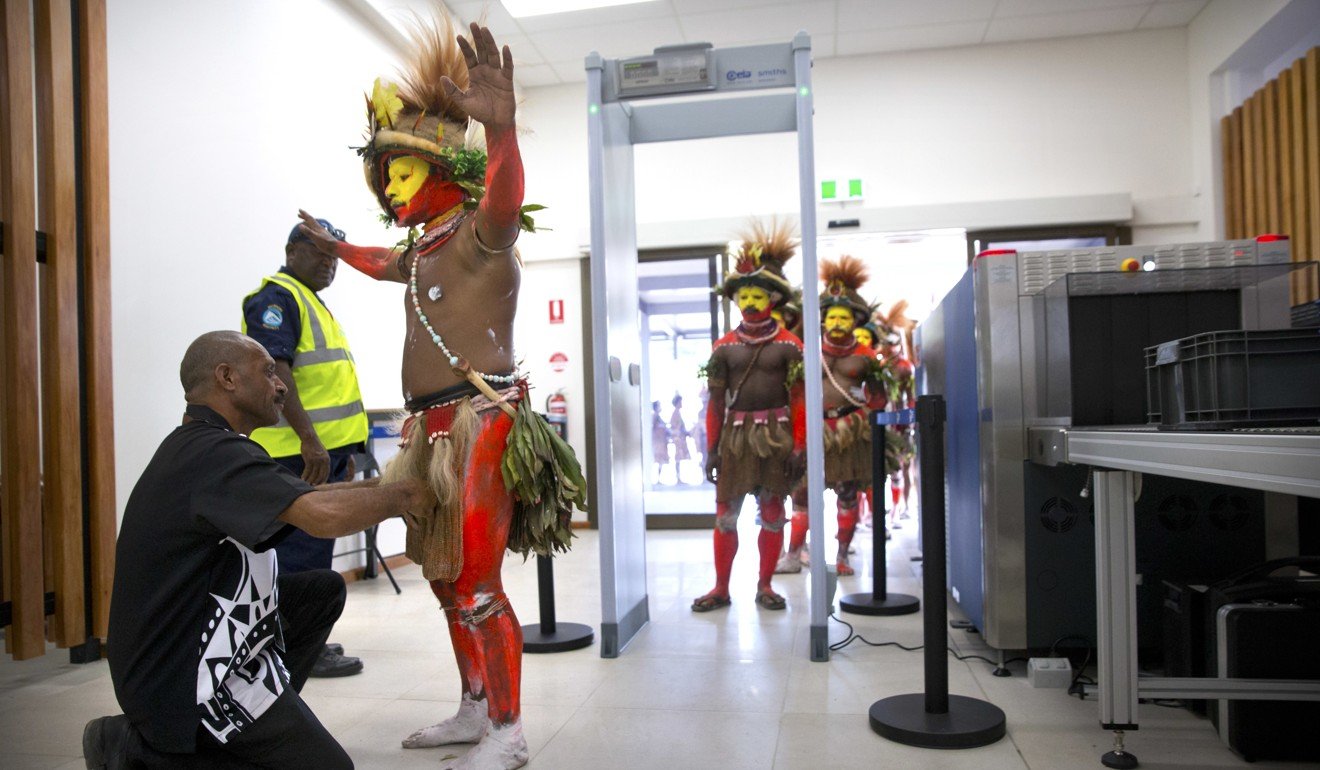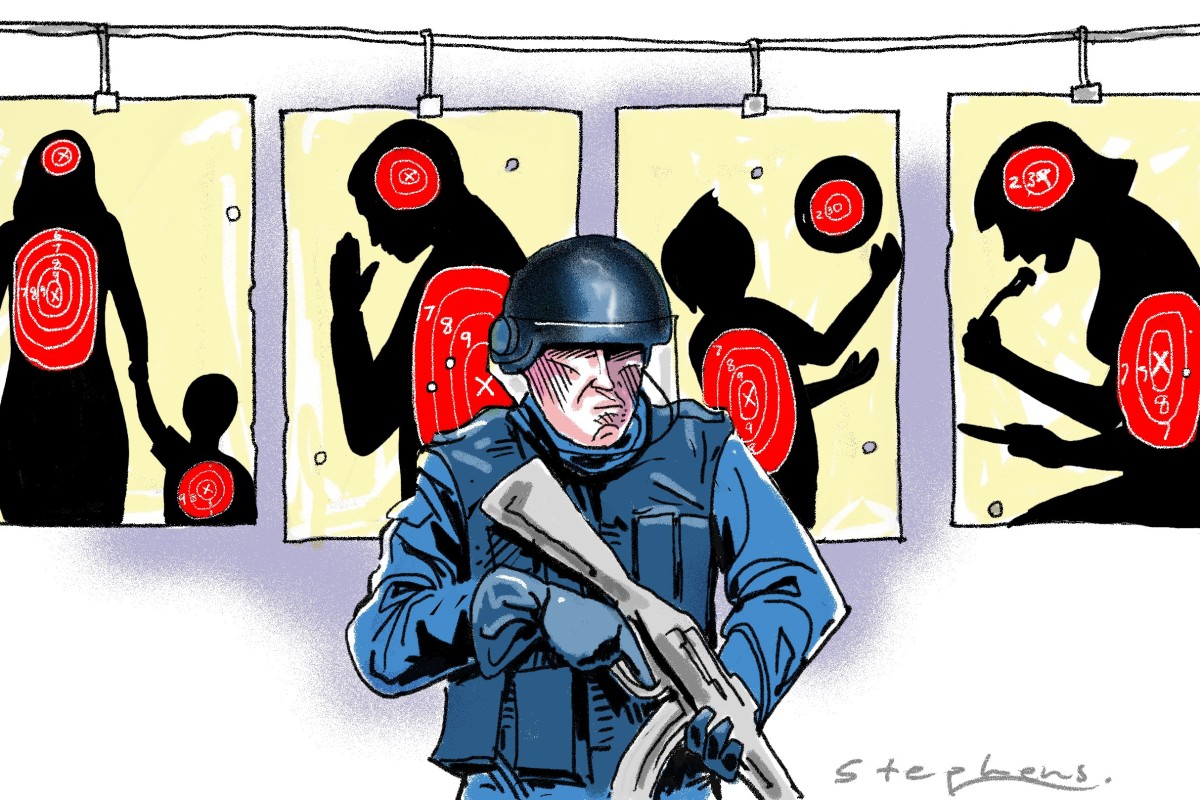After Sri Lanka bombings, security screenings could be coming to a shopping centre near you. Daniel Wagner
Illustration: Craig Stephens
In the 1990s, I travelled regularly to Sri Lanka, mostly for work. Back then, the
of the Tamil Tigers was in full swing and the island was enduring terrible carnage. Bus and train stations, places of worship, commercial flights and even the central bank were attacked during this period.
I visited Colombo soon after the central bank bombing in 1996. I stayed at what was at the time considered the best hotel in town – the Hilton – and was surprised to see what lax security was in place there. Even after the bank had been destroyed by a car bomb nearby, cars could freely drive up to the hotel’s front door. I distinctly recall having a conversation with the hotel’s security manager at the time and asking him why there were not more security precautions in place.
The terrible carnage in
and
raise uncomfortable questions about where to draw the line on security. Herein lies an enduring dilemma – what to attempt to secure because of perceived risk and what to be satisfied with, simply cross one’s fingers, and hope that nothing happens.
In countries such as India, Pakistan and the Philippines, the protocol is well established – government and large office buildings, luxury hotels, shopping centres, high-profile tourist attractions and public transport hubs have some security protocols in place, out of necessity. In these, and many other countries, the ability to freely move about without any restriction long ago disappeared – at least in major cities.
But even in these countries, there are plenty of exceptions to the rule, which provide seemingly limitless targets of opportunity for terrorists and assassins. Sri Lanka was just such an example.
Terrorists often prefer to attack soft targets because they usually lack strict security, and there are many more soft targets than hard targets. While the number of terrorist attacks on hard targets has been declining for many years, the number of attacks on soft targets has been rising for decades.
This being the case, greater effort should be made to implement at least minimal security for soft targets, especially among those categories that have proven to be particularly appealing to terrorists in the past. Apart from providing at least some peace of mind, doing so would likely be a sufficient deterrent to prevent would-be terrorists from attacking with impunity, many intended attacks could be thwarted, and their severity could at least be significantly reduced.
This implies a greater effort on the part of businesses and government working in tandem to adequately address the problem, for neither have sufficient resources to do so on their own.
Since businesses’ and governments’ approaches to addressing the issue of security are generally not in sync, all parties need to have incentives and guidelines in place so that they may act in a consistent and effective fashion. Increasing safeguards and enhancing general awareness is a precursor to meaningfully addressing the persistent nature of the threat.

A security officer checks a performer in traditional dress at a security screening at Jacksons International Airport in Port Moresby, Papua New Guinea, ahead of a visit by US Vice-President Mike Pence on November 17, 2018. Enhanced security screening will increasingly become commonplace in hotels, shopping malls and railways stations. Photo: AP
Spending the money necessary to reduce vulnerability to attack is perhaps the greatest challenge facing governments and businesses. Most countries did not construct infrastructure and buildings with the type of security safeguards necessary to thwart terrorist attacks. When power transmission substations, railroad tracks or office buildings were constructed, security was not a foremost consideration.
Most countries remain highly vulnerable to attacks on soft targets, and will continue to remain vulnerable because there are so many of them to protect. If governments and businesses are to win the battle against terrorism, they must adopt a completely proactive stance – anticipating likely targets, substantially strengthening security, and establishing countermeasures to prevent future attacks from occurring.
Border controls and identity checks must become even greater,
across borders must become easier and more comprehensive and
on gun owners need to become routine. Countries that are unaccustomed to implementing strict security precautions on their citizenry will need to begin doing so.
Since it appears likely that the days of being able to casually walk into a shopping centre without undergoing a security check are numbered, it would be sensible for business leaders to engage in a discussion with governments about how this is going to be accomplished – now. The sooner this is done, the sooner the general public will be conditioned to accept the inevitable – we face a future in which security will saturate many aspects of our daily routines, whether dining in a restaurant, boarding a bus, or entering an office building.
It has become necessary for businesses to begin to bear the cost of installing security systems and personnel to safeguard their customers and employees. They may as well embrace the reality that providing funding to achieve meaningful security is not just necessary but also a smart investment. All one need do is consider the enormous costs implied in enduring political violence, terrorism, or business-interruption losses – and the heightened insurance premiums that result from them – to realise that preventive action is prudent, sensible and cost-effective in the long term.
Businesses and governments must reach an understanding about how the problem of providing meaningful security is going to be addressed in the future. A coordinated, purposeful, definitive approach to creating a more secure environment must be achieved.
It is time to get out ahead of this issue, for the costs of waiting can only rise.
Daniel Wagner is CEO of Country Risk Solutions and author of the new book “China Vision”












Comments